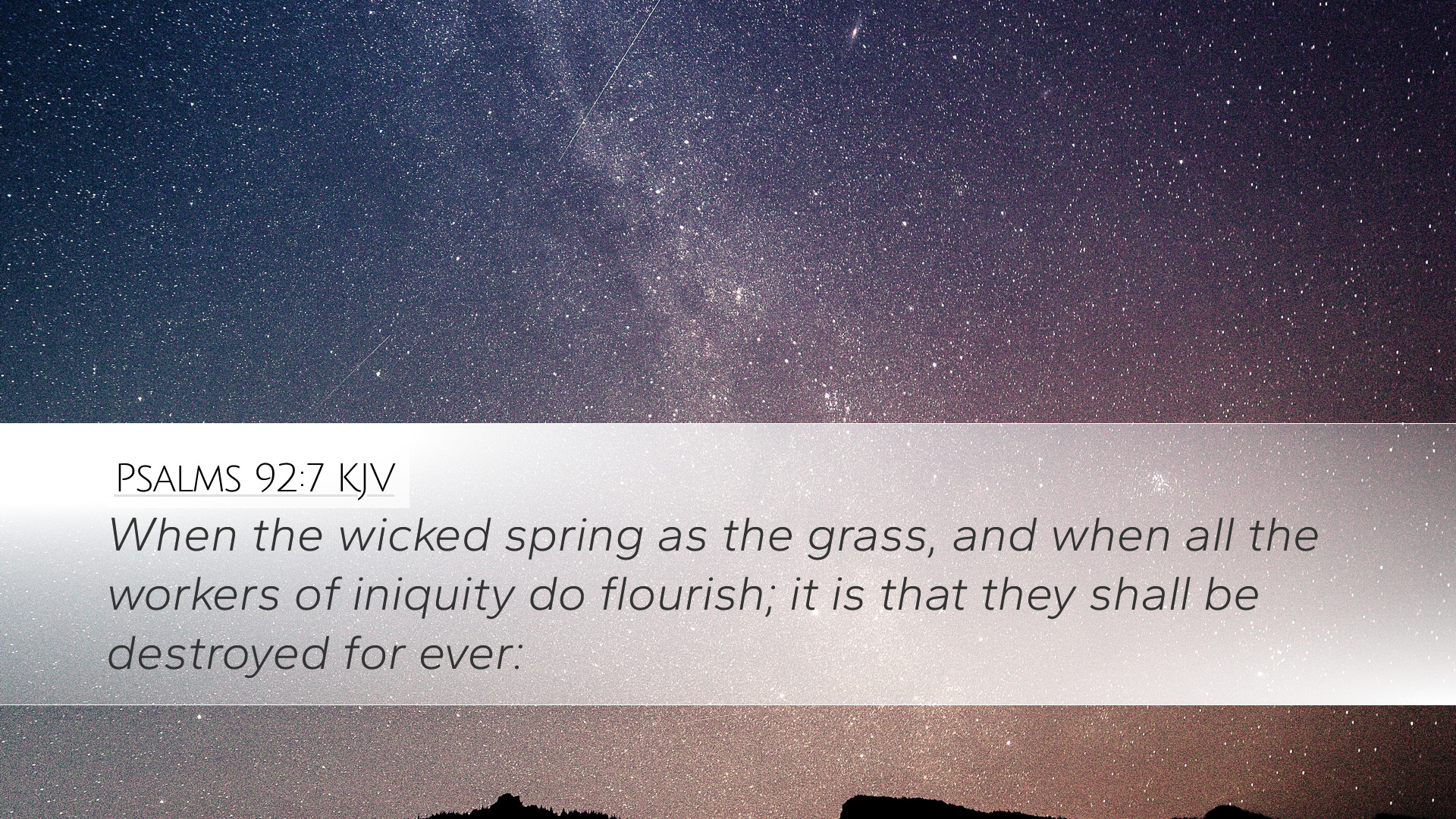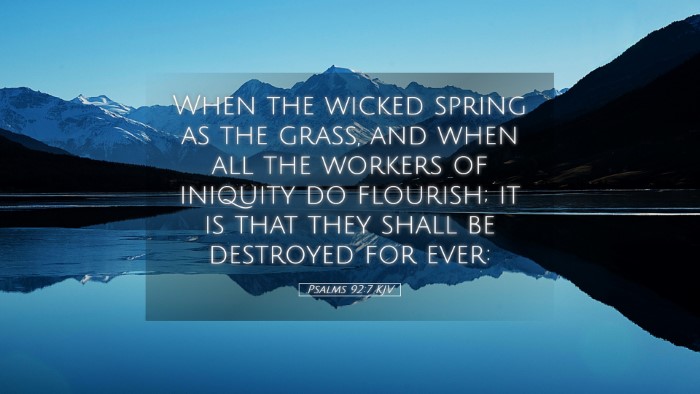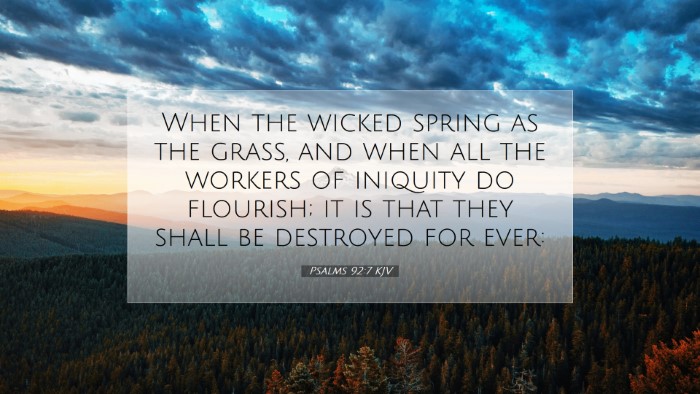Psalm 92:7 Commentary
Bible Verse: "When the wicked spring as the grass, and when all the workers of iniquity do flourish; it is that they shall be destroyed for ever:" (Psalm 92:7, KJV)
Introduction
This verse addresses a perennial theme in the Hebrew Scriptures: the contrast between the temporary success of the wicked and the eventual destruction they face. In the context of Psalm 92, which is a song of worship and reflection, this verse serves as a significant warning and a source of comfort for the righteous. It reminds believers of God's ultimate justice, encouraging them to maintain their faith in the face of worldly adversity.
Insights from Public Domain Commentaries
Matthew Henry's Commentary
Matthew Henry highlights the fleeting nature of wickedness, where the prosperity of the ungodly is likened to grass that may spring up quickly but is not enduring. He points out that although the wicked might seem to thrive, their end is certain: they will be utterly destroyed. Henry emphasizes the importance of patience and faith, suggesting that the righteous should not be discouraged by the seeming success of the wicked.
- Temporary Success: Henry explains that the flourishing of the wicked is often immediate and visible, much like the quick growth of grass.
- The Certainty of Judgment: The verse reassures believers that regardless of how things may appear momentarily, God's justice will eventually prevail.
- Encouragement for the Believer: Believers are encouraged to remain steadfast in their faith, trusting in God’s timing and righteousness.
Albert Barnes' Notes on the Bible
Albert Barnes provides a detailed analysis of the imagery used in this verse, highlighting the metaphor of "springing grass." He asserts that this vivid picture serves to underscore the danger of envy that believers may feel towards the wicked. Barnes elaborates on the idea that while the wicked flourish, it is ultimately their folly, as their end is destruction.
- Folly of the Wicked: Barnes notes that the prosperity of the wicked reveals their ignorance of God’s ultimate justice.
- Hope for the Righteous: The righteous are reminded that their faithfulness and obedience to God will not go unrewarded.
- The Nature of God’s Justice: Barnes emphasizes God’s character, affirming that His justice aligns with His holiness, leading to inevitable divine retribution against evil.
Adam Clarke's Commentary
Adam Clarke approaches the verse with a focus on the consequences of wickedness and the broader scope of Psalm 92. He expresses that while the wicked may appear to thrive temporarily, they are on a path leading to destruction, akin to a fleeting shadow. Clarke's interpretation highlights the moral and spiritual ramifications of wickedness, and the ultimate assurance of God’s judgement.
- Contrast of Flourishing and Destruction: Clarke emphasizes the stark contrast presented in the verse, fostering a greater understanding of the moral order established by God.
- Reflection on Eternal Values: He encourages readers to consider the eternal implications of their actions rather than focusing on immediate results.
- Awareness and Discernment: Clarke calls on believers to recognize the transient nature of sin and the assurance that God’s justice will triumph.
Theological Reflections
This verse serves multiple theological implications that are crucial for pastors, students, and scholars alike. The temporary flourishing of the wicked contrasts with the eternal truth of God’s sovereignty and justice. Below are key reflections:
- The Sovereignty of God: The verse emphasizes that God remains sovereign over the affairs of humanity, including the rise and fall of the wicked.
- The Nature of Evil: Psalm 92:7 invites theological reflection on the nature of evil – it is transient and ultimately leads to destruction.
- Hope and Assurance: Believers are assured that their sacrifices and sufferings in life are not unnoticed by God, and that He will deal justly with sin.
- Encouragement for Patience: The psalm encourages patience among believers, affirming that the present state of affairs is not the final outcome.
Conclusion
Psalm 92:7 serves as a powerful reminder of the temporal nature of wickedness and the certainty of divine justice. The insights drawn from historic commentaries reinforce the idea that while the wicked may seem to prosper, their end is destruction. This knowledge equips believers with the hope and strength to persevere in faith, trusting in God’s promises. It encourages a deeper understanding of the significance of righteousness and the ultimate triumph of good over evil.


